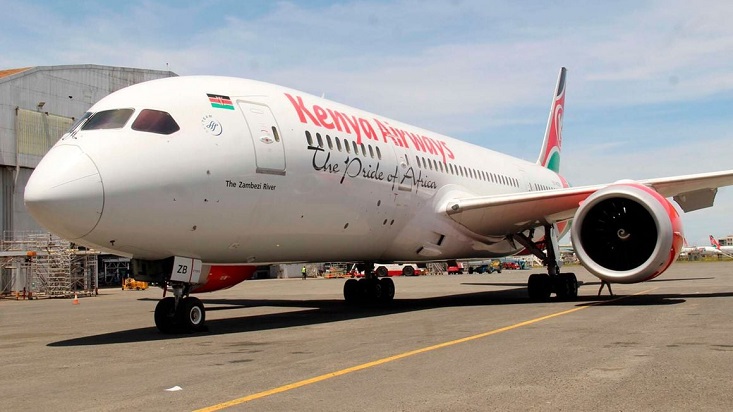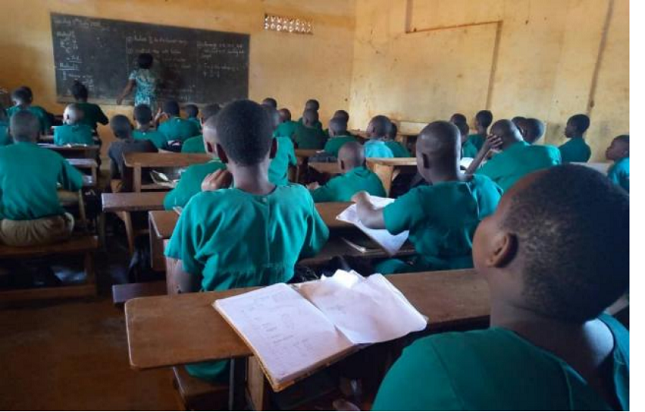National carrier Kenya Airways (KQ) has reported its biggest half-year loss, weighed down by heavy forex losses and a pile-up of debt that have upset its turnaround plan.
Despite a 56 percent growth in revenues to KSh75 billion, a 43 percent jump in passenger numbers to 2.3 million and its first operating profit in six years, higher costs pushed the airline deeper into the red after it more than doubled its losses to KSh21.7 billion (over USh534.5bn) in the six months to June 2023.
The loss is a 120 percent increase from the KSh9.9 billion loss the airline reported during the first half of 2022 and is more than the KSh15 billion full-year loss for 2021.
KQ attributed the performance to finance costs soaring to KSh22.8 billion, a 360 percent increase from KSh4.9 billion during the first half of 2022.
Forex losses consumed KSh15.3 billion of the total finance costs, driven by the depreciation of the Kenyan shilling against the dollar.
The management had a KSh998 million operating profit to toast to— being the first in years and an improvement from KSh5 billion operating loss. But foreign exchange losses rained on the parade themed ‘The green shoots of the restructuring process’.
“For the longest time, we were below the line and now for the first time we are operationally profitable, which shows that the business is actually viable. If we can deal with the legacy issues that have plagued us for many years, we are a viable business, we are an attractive business,” said KQ CEO Allan Kilavuka.
“Our focus looking ahead is on recapitalising the business to place KQ on a stronger footing and provide a stable base for long-term growth.”
The 39.5 percent or KSh20.99 billion increase in operating costs to Sh74.1 billion nearly wiped out all the revenues the airline made.
The KSh998 million spared and the KSh114 million interest income was not enough to absorb the KSh15.32 billion foreign exchange losses and finance costs incurred in the review period.
Worse, the airline has debts to settle, unpredictable fuel prices and a weakening shilling to contend with as well as the KSh133.2 billion negative equity that makes it technically insolvent.
KQ closed the half year with liabilities worth KSh124.8 billion falling due in under a year and a further KSh176.8 billion in long-term liabilities. It is banking on the government for more support.
The airline, a member of the Sky Team Alliance, flies to 42 destinations worldwide, 35 of which are in Africa, and is planning to expand its network.
The surge in costs and a debt estimated at $1 billion (about KSh145 billion) weakened its efforts to break, even as the airline appeared to be making bigger losses while revenues increased.
The airline has reported half-year losses consecutively over the past 11 years. But the current results are the worst and underline the difficulty it faces in its attempts to break even next year.
Since 2020, the airline has made losses totalling KSh111.9 billion and just last year it reported the worst full-year loss of KSh38.2 billion.
A weaker shilling to the dollar has dug a KSh18.9 billion hole in KQ books.
“This year it (the USD-KSh exchange rate) peaked at a high of Sh140 and it is heading towards KSh150 by the end of the year. This has a significant impact on our results particularly when it comes to foreign exchange losses. This is because we have a lot of legacy costs, about $1 billion of legacy debt and when you reconvert it using the new exchange rate, they go straight to hit your results,” Mr Kilavuka said.
He said the airline hired about 10 percent more employees during the six months due to improved operations.
KQ, which has been in the hands of four different CEOs in the past 10 years, is eyeing a return to profit next year.
Mr Kilavuka singled out legacy debt and the devaluation of the Kenya shilling against major currencies as the two concerns that held back the airline’s bottom line.
“We are working to resolve the issue of the legacy debt in collaboration with our stakeholders and the Kenyan government. The debt is worsened by the 14 percent devaluation of the Kenyan shilling against the dollar since January, which we have had to book as foreign exchange losses,” said Mr Kilavuka.





